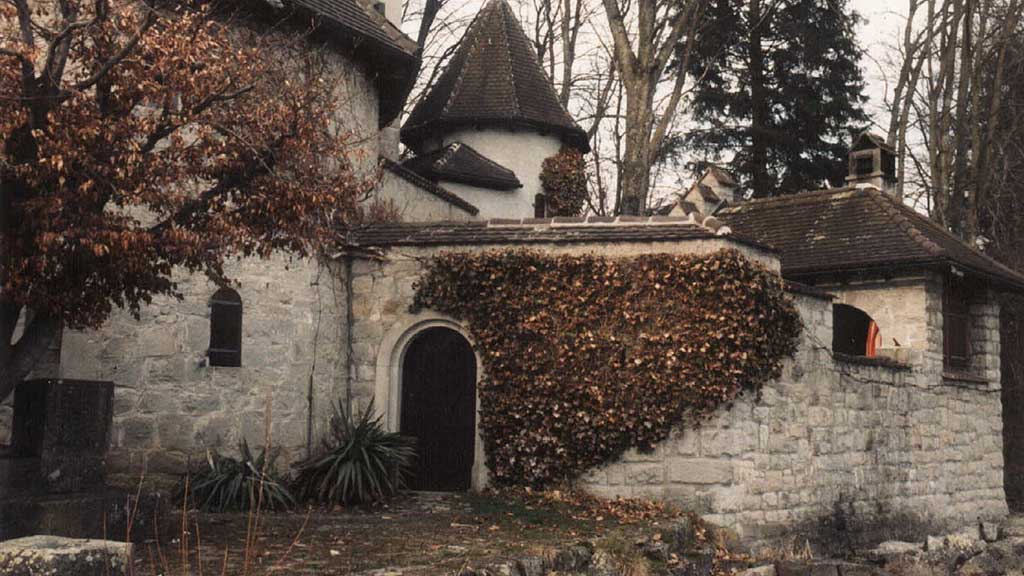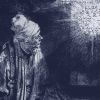In the Tower at Bollingen it is as if one lived many centuries simultaneously. The place will outlive me, and in its location and style it points backward to things of long ago. There is very little about it to suggest the present. If a man of the sixteenth century were to move into the house, only the kerosene lamp and the matches would be new to him; otherwise, he would know his way about without difficulty.
There is nothing to disturb the dead, neither electric light nor telephone. Moreover, my ancestors’ souls are sustained by the atmosphere of the house, since I answer for them the questions that their lives once left behind. I carve out rough answers as best I can. I have even drawn them on the walls. It is as if a silent, greater family, stretching down the centuries, were peopling the house.
Quote from Memories, Dreams, Reflections (1962), p. 237. ― Carl Gustav Jung.

In 1950, on the occasion of his 75th birthday, Jung set up a stone cube on the lakeshore, just west of the tower, inscribing it on three sides. One side contains the quote: “Hic lapis exilis extat, pretio quoque vilis, spernitur a stultis, amatur plus ab edoctis.” Here stands the mean, uncomely stone, ‘Tis very cheap in price! The more it is despised by fools, The more loved by the wise. The second side of the cube depicts a Telesphorus figure, a homunculus bearing a lantern and wearing a hooded cape.
It is surrounded by a Greek inscription. The inscription says: Time is a child — playing like a child — playing a board game — the kingdom of the child. This is Telesphoros, who roams through the dark regions of this cosmos and glows like a star out of the depths. He points the way to the gates of the sun and to the land of dreams. (Heraclitus) The second side also contains a four-part mandala of alchemical significance.
The top quarter of the mandala is dedicated to Saturn, the bottom quarter to Mars, the left quarter to Sol-Jupiter -male-, and the right quarter to Luna-Venus -female-. The third side of the cube is the side that faces the lake. The inscription says: I am an orphan, alone; nevertheless I am found everywhere. I am one, but opposed to myself. I am youth and old man at one and the same time. I have known neither father nor mother, because I have had to be fetched out of the deep like a fish, or fell like a white stone from heaven. In woods and mountains I roam, but I am hidden in the innermost soul of man. I am mortal for everyone, yet I am not touched by the cycle of aeons.



